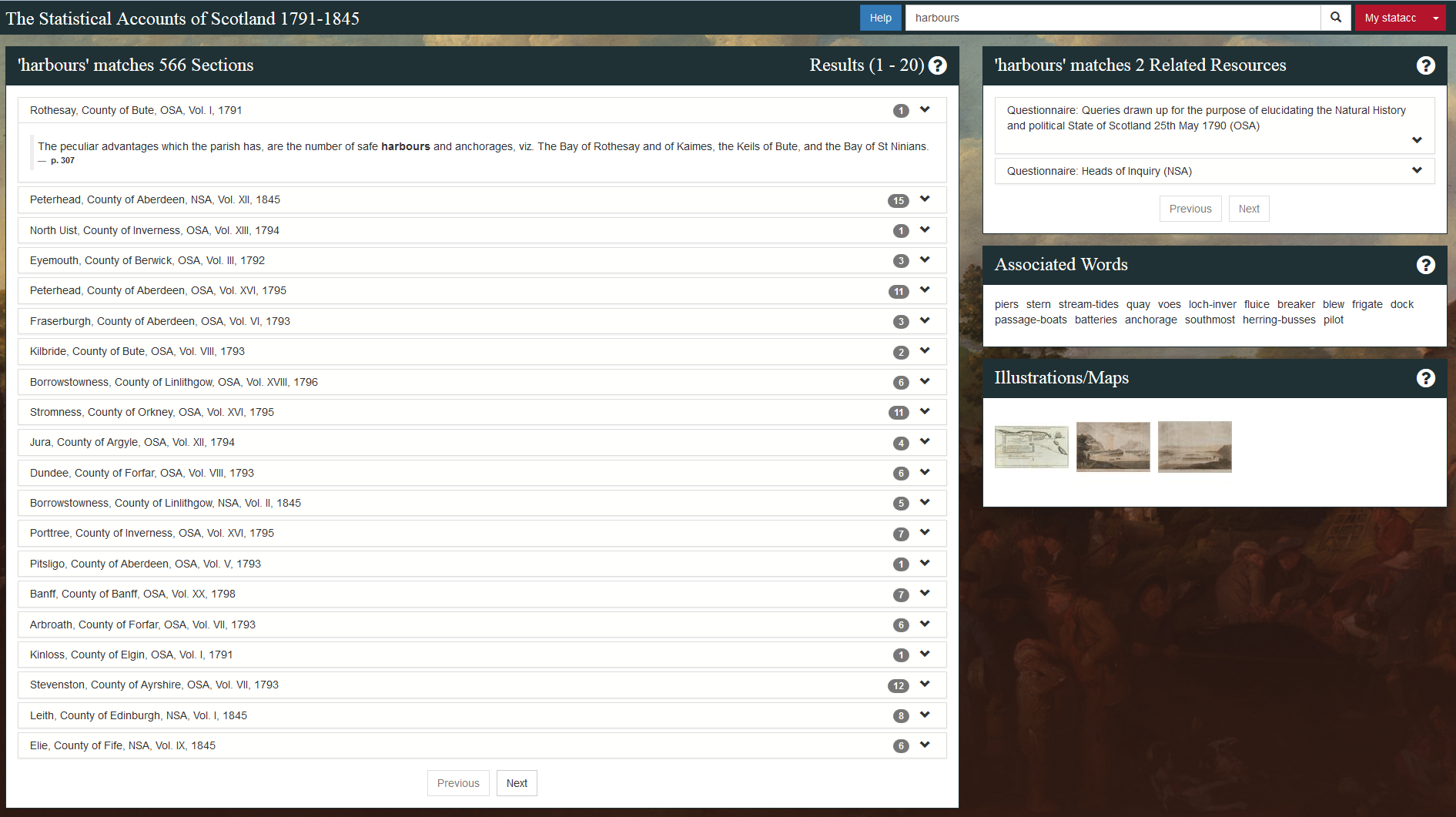As you may have already noticed, the Statistical Accounts of Scotland service now has a new look as well as new and improved features. We hope you have been exploring them since the new service was launched at the beginning of November. This is the first in a series of blog posts about some of the functionality you may have come across or may not have yet discovered! Here we concentrate on the search and structure of the new website.
Improved search
We have aimed to allow searching in the same way as you would use an internet search engine. The service will look not only for direct matches but also for possible variations and related terms.
Search features include:
- The ability to limit your search to the old statistical accounts or new statistical accounts by adding either OSA or NSA to your search terms, e.g. OSA schools. It is also possible to limit your search still further by stating the actual volume and even the specific page, e.g. OSA vol5 pg27.
- The ability to search by geographical area, by using one of the eight cardinal compass points in your search term, i.e. N, NE, E, SE, S, SW, W, NW.
- A subject search which allows you to search for pages which are discussing a particular topic but which may not mention the exact word. The system looks at the words you type into the search box and tries to deduce any subjects you might be interested in or you can include the subjects directly. The full list of subjects can be found on the How to get the most out of the Statistical Accounts of Scotland online page. This functionality is a little experimental at the moment, so it would be great to get any feedback on this feature.
- The ability to search the related resources, with access to these available from the main search results page. Please note that related resources, such as digitised versions of Sinclair’s Specimens of Statistical Accounts (1793) and Analysis of the Statistical Account of Scotland (1825-1826) and related surveys such as the Stow Census, are only available to subscribers.
- Associated words which is another experimental feature that may present words that frequently appear in proximity to your search terms. If your search term returns a box of associated word you can click on these words to explore terms related to those you are interested in.

Search results page showing a number of features of the new service. Screen-shot captured from the Statistical Accounts of Scotland Online on Wednesday 30th November 2016.
County and Parish Pages
We also wanted to make it easier to search for material that is related to specific places, and tried to do this by bringing together information on each parish or county on one dedicated page. These can be navigated to using the maps, as well as the search box. These pages present all the content we have that is related to that county or parish, alongside a county or parish map and a brief description, extracted from the text. From here, you can view the map in high resolution, navigate to the county page if you are on a parish page, or navigate to one of the accounts or resources related to the parish if you are on a parish page.
We hope that the improved functionality and re-design of the Statistical Accounts of Scotland will both allow you to find the relevant information quickly and to explore other related information easily. Try the new features and discover more about Scotland’s counties and parishes.
More information on all the features mentioned above, as well as others, can be found in the Statistical Accounts of Scotland Help Pages and the How to get the most out of the Statistical Accounts of Scotland online page. If you have any comments or queries please contact the EDINA Help Desk (edina@ed.ac.uk).